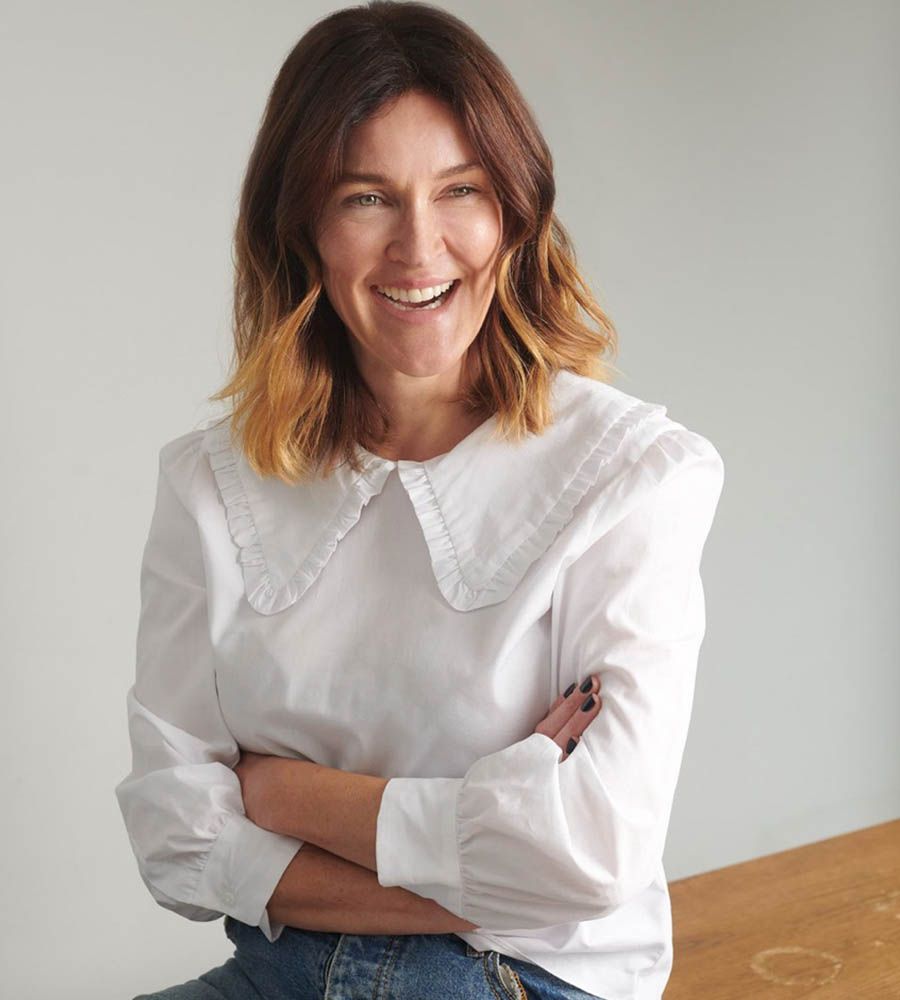Do you recommend any perimenopause supplements/ treatments that will help support one hormonally in their 40s?
I recommend all women try to get some basic bloods done: ferritin (iron), B12, folate, vitamin D and folate. If these are sub-optimal women can be left feeling low, tired and flat. Thyroid health is also important at this time of life and many of the symptoms mimic those of perimenopause: thinning hair, fatigue, weight gain, insomnia, anxiety and irritability, so if women can get their thyroid levels checked at the same time as their baseline bloods, even better.
I try not to recommend blanket supplements as everyone is so individual but there are a few basics that I think most women benefit from. Everyone needs a Vitamin D (ideally with a K2 as this helps with bone health) as we can’t get enough from food alone and some omega 3 if they’re not eating two portions of oily fish a week. For vegans/vegetarians who don’t eat fish, invest in an algae oil like Vim & Vigour by Bare Biology.
A good B complex (containing all 8 B vitamins) can be beneficial for energy levels and healthy hormone synthesis, while magnesium very often helps with things like sleep and restless legs, particularly if taken before bed. Look for a glycinate variety as it’s well absorbed and aim for around 350mg. Creatine monohydrate is also deserving of a place in a perimenopausal women’s stack - it helps with muscle building and exercise performance and emerging science suggests it may also help with cognition.
This isn’t nutrition or supplement related but carving out regular quiet time for yourself is so critical to good mental health and many women aren’t very good at giving themselves time out. Putting boundaries in place and being able to say ‘no’ to things you simply do not want to do is liberating at any time of life but especially during perimenopause when really you just need to be focusing on yourself as much as you can. Lots of my clients don’t enjoy meditating (it’s not for everyone!) so I tell them to make sure they weave pockets of silence into their day to keep their mental health in check. A solo walk in the park or a bath and a book are the best therapies for a frazzled mind.
What foods are good for perimenopause? Please share your expert-approved nutrition guide for perimenopausal women.
Blood sugar control is crucial to help with mood, energy, sleep and weight management. It’s often overlooked but is a really quick fix for most women. Start by ensuring every meal includes what I call the key 3: protein, fibre and fats. Having all 3 of these on board slows down the release of sugars and helps you maintain a steady glucose state. This is most important at breakfast because starting the day right means you stay on this nice even energy buzz. Traditional breakfast choices like toast with jam, cereal, orange juice aren’t doing us any favours. A better choice would be Greek yoghurt or soy yoghurt if you’re vegan - they both have decent levels of protein - plus a tablespoon of ground flax for the fibre and a little nut butter for some healthy fat. Add in some berries for antioxidants and some extra fibre plus some sweetness and you have a pretty unbeatable start to the day.
I follow the same principle for lunch. I ask my clients to fill in food diaries before our consultations and I see a lot of soup and salads or sandwiches for lunch. These women invariably feel shattered around 3 or 4pm because they haven’t had enough protein. Soup and salad is fine but add in some protein: some tofu or one of those pre-cooked mackerel fillets or some lentils.
Calcium is crucial for bone health. You need 700mg a day if you’re under 50 and 1200mg if you’re over 50. You can get it from dairy, fish with small bones (such as sardines), fortified plant milk (check the label), broccoli, figs, kale, sesame seeds and figs.
You don’t have to be vegan but a plant-focused diet is really helpful for the antioxidants that mop up free radicals that can damage cells and accelerate ageing. Fibre is the unsung hero of the nutrition world. It keeps our digestion regular (constipation can be a problem during perimenopause) and it feeds the trillions of bacteria that reside in our gut. Good gut health has benefits throughout the body and impacts every organ. It can affect mood, brain function, skin and heart health.
Healthy fats are needed to make hormones but also for a strong skin barrier (which women often find gets compromised at this time due to a lack of oestrogen) and to absorb certain vitamins: A, D, E and K all of which play a key role in skin health.












